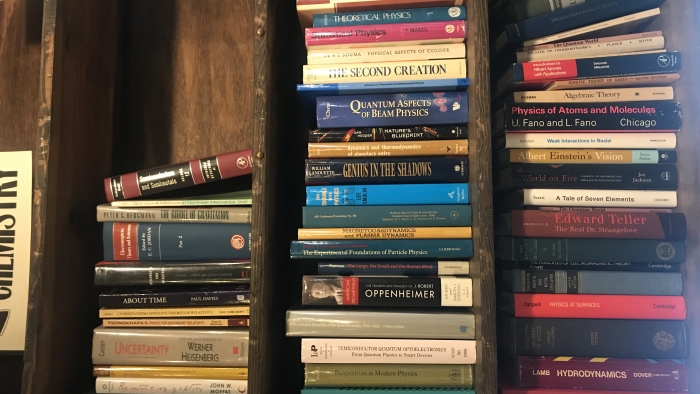When I was around nineteen and twenty years old, I got lucky. Incredibly lucky. Similar to how even the most unskilled archer can hit a target, I hit a target. What was more, I hit it on a first try. I was the literary equivalent to someone who had never touched a longbow hefting one up, trying it out to size, walking up into a contest because I was curious about the crowd of people standing there, chatting up Robin Hood, and splitting his bulls-eye arrow with my first shot.
It was an accident.
Of course, I had wanted to be a pro writer since I realized that there were people writing these wondrous stories, stories that could take me, pull me out of my head, into worlds that were beautiful, interesting, terrifying, into worlds where good always triumphed, into worlds so unlike our own.
(My third-grade teacher patted me on the head, somewhat helplessly: But you’d make an excellent lawyer, sweetie…)
The fact that I wrote, and wrote furiously, did not grant me especial skill.
I went to two professional conferences before I could legally drink. The students nearest to my age were a decade older than me. The majority of the students were two decades older than me. Some had children my age. Most had gone to the conventions to network, to connect with other burgeoning professionals and to develop the relationships that would guide them into the next phase in their career.
I did not even know what a word count was. Or a cover letter.
I was still young enough that the call of thunder could draw me outside into the rain, to greet it with an upturned face. I didn’t care who watched. I’d wear a vinyl jacket one day; a peach blossom Gunny Sax dress another. I’d had jobs. But I’d never been a professional. I’d never been in love. I’d never woken up with a hangover. I’d had many experiences my peers hadn’t but I’d never had adult experiences. I had no idea what a mortgage was and I had no understanding why anyone, when they moved, needed anything but a suitcase in their hand, clothes on their backs, and a wallet in their pocket.
I sat there, taking notes, wondering why no one would talk to me, trying fiercely to understand conversations I had no context for, and learning how to do professional writer tasks that I’d had no idea even existed minutes before the topics emerged. I’m not writing this to dismiss my younger self: I had skills, intelligence, talent, and passion. I had valuable contributions. But these workshops were not geared toward anyone in my age group.
I don’t regret going. I learned so much–so much I still use today. I will always remember those writers who went out of their way to make me feel welcome when I was so clearly out of my depth. That kindness will live in me forever.
I posted about contributing to Dream Foundry’s Kickstarter on Twitter, and now I’m writing to you about why I’m contributing toward Dream Foundry’s mission as a content co-manager.
Unlike literary fiction, speculative fiction has no large contest or workshop that recognizes the special differences of a teenage or college-age writer. In high school I was peppered with ads targeting kids who wanted to write literary works. I remember looking at these–the ones that offered scholarships for attendees–and wondering: Why doesn’t this say “fantasy” on it? Would I even have a chance if I applied? I never did. I knew they weren’t for me.
Dream Foundry aims to work with that population, and others, and to develop an ecosystem of sustained mentorship, to help young people develop the long-term relationships that foster them into the community. Building community is particularly important when it comes to supporting women, trans*, LGBTQ individuals, people of color, and other historically marginalized groups–because it’s not enough to invite people in. I remember too well what it was like to walk a convention hall and have strangers ask me whose booth bunny I was; it was lonely. Why stay in this field, why stay in this room, why participate in this discussion, if there’ s no room for me in it? Why fight so hard to be heard if no one listened?
Dream Foundry hopes to build something. Imagine instead what it would be like, walking into that room, with familiar faces and outstretched hands, with the feeling that if we link together we’ll be strong enough to withstand whatever’s thrown at us. Having that network of peers might make all the difference between a marginalized writer staying in that room–or leaving. Young writers who have spent time fighting to be heard might be able to spend more time writing their stories with the knowledge that someone’s already listening.
That’s why I’m interested in volunteering with Dream Foundry.
There’s still that eight-year-old reader inside me who longs to be transported into wondrous stories, stories that could take me, pull me out of my head, into worlds that were beautiful, interesting, terrifying, into worlds where good always triumphed, into worlds so unlike our own. I know there are young writers waiting to learn more, to be invited in, and they want to stay; they want to tell the stories they’ve always longed to read. And I want to read those stories.
